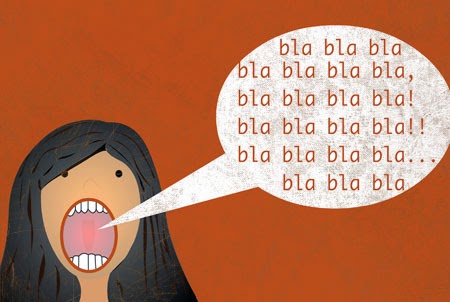You probably don't know James Wilson, but the folks at Lighthouse Baptist Church do. In 2000, the Pastor wrote a sermon called "Who Me? Worry?" that has absolutely no connection to the gap-toothed poster boy of MAD Magazine, Alfred E. Neuman, who said sort of the same thing. Alfred substituted "what" for "who." But I digress.
 Anyway, in the sermon, Pastor Wilson took Matthew's words in the New Testament (chapter 6, verse 34) and brought them up to date:
Anyway, in the sermon, Pastor Wilson took Matthew's words in the New Testament (chapter 6, verse 34) and brought them up to date: Therefore do not worry about tomorrow, for tomorrow will worry about itself. Each day has enough trouble of its own.
His sermon was about how much we worry about real things, like children worrying about death, and adults worrying about leaving their children too early when death knocks on their door.
In my world, a second stroke was the real thing. After almost six years since my stroke which happened April 8, 2009, my top worry was about getting a second stroke. Of course, I Googled it, and I found the following article reported by HealthDay in 2005:
"People who have had a minor stroke have a 43 percent risk of another, potentially fatal stroke within 10 years, Dutch researchers report."
There were 2 things wrong with that report. First, it was only said about one country, and second, the report was 10 years old. So I continued to look and found this one from Deborah Davis, DNP (Doctor of Nursing Practices), written 10 years later, aka 2015:
"The American Heart Association and American Stroke Association estimates nearly a third of the strokes which occur every year in the United States are second strokes. Also, physicians contend there is a 40% chance of having a second stroke within five years of the first."
If that were true, that means I passed the 5-year milestone. And this from Dr. Oz, a cardiologist, television star, and heart throb with the 45-and-older set, written in our current year as well:
"Certainly, many strokes are caused by high blood pressure. For those people, there's a 20 percent recurrence rate within two years if they control their blood pressure, compared to a 50-percent rate if they don't. You can lower that 20 percent even more (by about 70 percent more) by avoiding smoke (even second-hand), eating healthy fats (like 2 grams of distilled fish oil or an ounce of walnuts a day, controlling stress, and meditating daily."
Last year, Dr. Bernd Kallmunzer of the Department of Neurology at Universitätsklinikum Erlangen in Germany, after conducting a study on second strokes, told Reuters Health, "Taking a pulse reading can detect atrial fibrillation, a leading source of blood clots that travel to the brain and cause stroke. Detecting atrial fibrillation is important because the patient can be treated with anti-clotting medications to reduce the risk of another stroke or death.
"The risk of a second stroke is highest during the months after the first one [now it's months--better yet--and a neck pulse is ideal for somebody who has use of only one hand], but currently researchers do not know exactly how long this kind of pulse monitoring should go on," he said.
I have low blood pressure, low cholesterol, don't smoke and I'm not around smokers, not overweight, and got over my stress through therapy. No, I shouldn't have another stroke, but I shouldn't have had the first one either. (http://stroketales.blogspot.com/2014/07/how-two-legal-drugs-caused-my-stroke.html)
I always say, because it's true, you never know what's around the corner. You just never know.











































